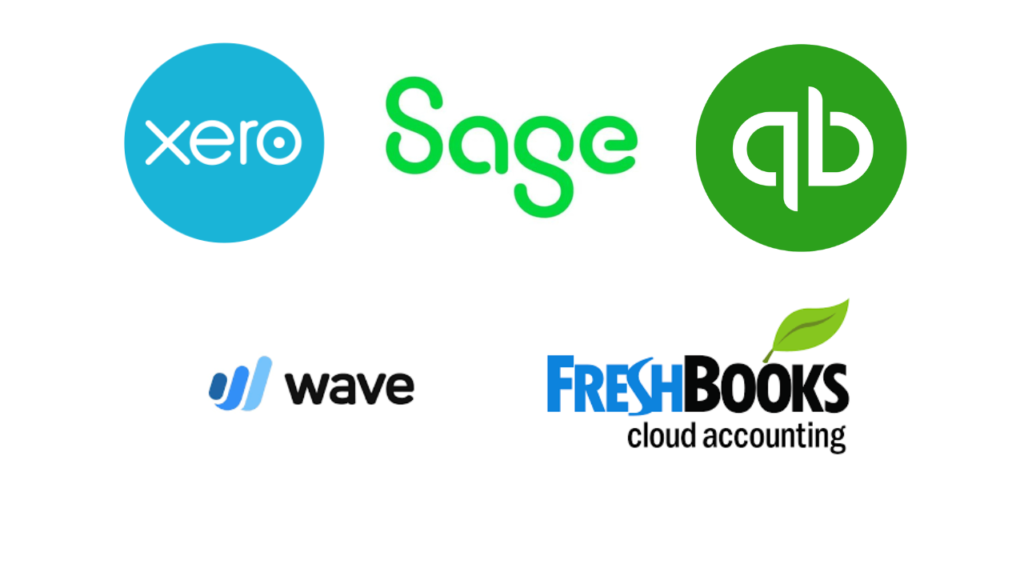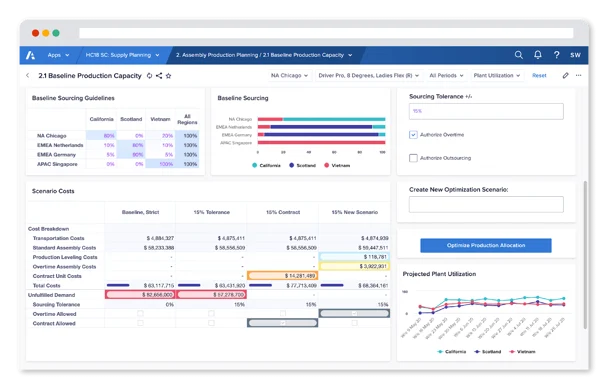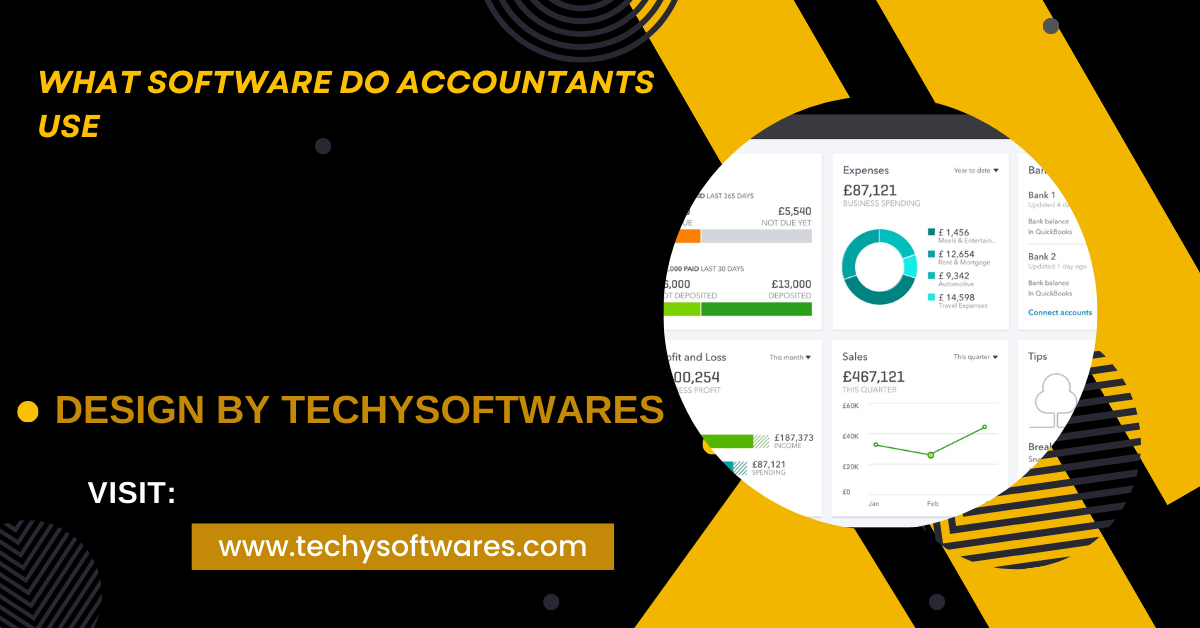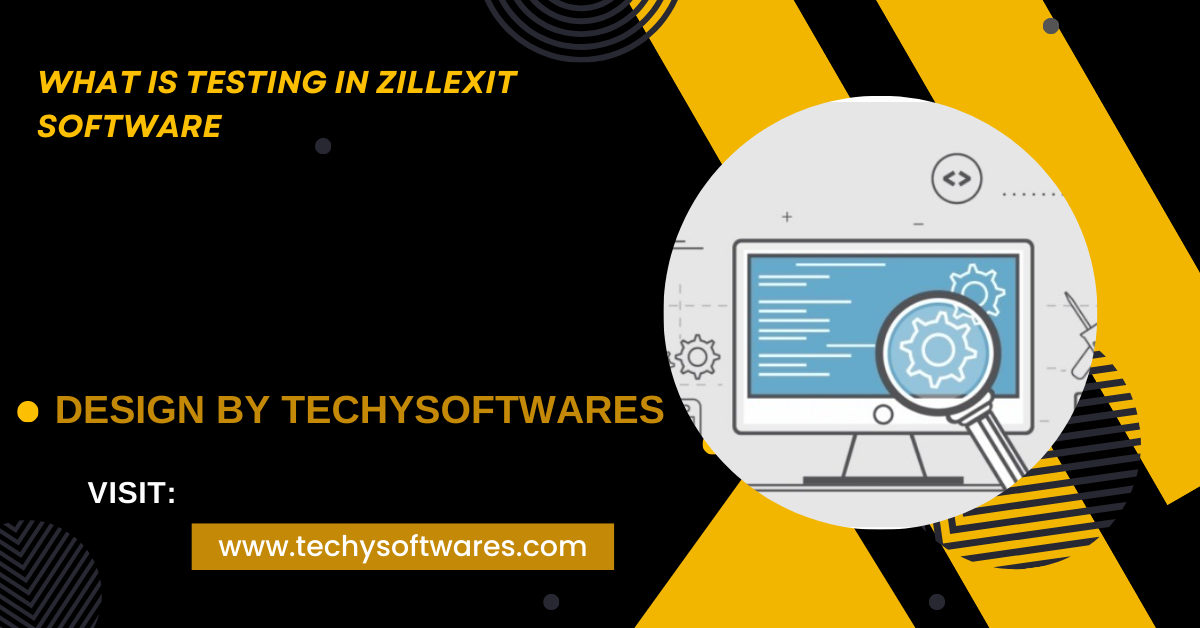Accountants utilize software like QuickBooks, TurboTax, ADP, SAP, and CaseWare to streamline financial tasks, ensure accuracy, and maintain compliance.
In this article, we’ll explore the most popular software that accountants use to streamline their workflows and deliver accurate financial results.
Accounting Software:
Key Players: QuickBooks, Xero, FreshBooks

Accounting software is the backbone of any accountant’s toolkit. These platforms automate essential accounting tasks such as invoicing, expense tracking, payroll, and financial reporting. QuickBooks, Xero, and FreshBooks are among the most widely used, offering features that cater to small businesses, freelancers, and larger enterprises.
Benefits:
- Automates repetitive tasks, saving time and reducing errors.
- Generates detailed financial reports for better decision-making.
- Integrates with other financial tools and banking systems.
Tax Preparation Software:
Key Players: TurboTax, TaxSlayer, H&R Block
Tax preparation software simplifies the process of filing taxes, ensuring compliance with the latest tax laws and regulations. These tools help accountants prepare accurate tax returns, calculate deductions, and file electronically. TurboTax and TaxSlayer are popular choices for both individual and corporate tax filings.
Benefits:
- Keeps up-to-date with the latest tax laws and deductions.
- Guides accountants through the tax filing process with step-by-step instructions.
- Supports electronic filing, reducing the risk of errors and speeding up processing.
Payroll Software:
Key Players: ADP, Gusto, Paychex
Managing payroll is a critical task for accountants, and payroll software makes it much easier. These platforms handle everything from calculating wages and withholding taxes to direct deposit and compliance with labor laws. ADP, Gusto, and Paychex are leading providers in this space, offering robust features for businesses of all sizes.
Benefits:
- Automates payroll calculations, reducing manual errors.
- Ensures compliance with state and federal payroll regulations.
- Provides employees with self-service access to pay stubs and tax forms.
Enterprise Resource Planning (ERP) Software:
Key Players: SAP, Oracle, Microsoft Dynamics
For larger businesses, ERP software integrates accounting functions with other business processes like inventory management, procurement, and human resources. SAP, Oracle, and Microsoft Dynamics are top choices, offering comprehensive solutions that help accountants manage complex financial operations across various departments.
Benefits:
- Integrates accounting with other business processes for seamless operations.
- Provides real-time financial data and insights.
- Scales with the business, accommodating growing financial needs.
Also Read: What Are Two Reasons Firms Use Benefits Management Software – A Detailed Guide!
Auditing Software:
Key Players: CaseWare, IDEA, ACL Analytics
Auditors rely on specialized software to analyze financial data, identify discrepancies, and ensure compliance with regulations. CaseWare, IDEA, and ACL Analytics are commonly used auditing tools that provide advanced data analytics, fraud detection, and audit trail documentation.
Benefits:
- Enhances accuracy and efficiency in auditing processes.
- Automates the detection of errors, inconsistencies, and fraud.
- Generates comprehensive audit reports for regulatory compliance.
Spreadsheet Software:
Key Players: Microsoft Excel, Google Sheets
Despite the availability of specialized accounting software, spreadsheets remain an essential tool for accountants. Microsoft Excel and Google Sheets are used for everything from budgeting and forecasting to data analysis and financial modeling. Their flexibility and powerful formula functions make them indispensable in the accounting profession.
Benefits:
- Offers customizable templates for various accounting tasks.
- Facilitates complex financial calculations and data analysis.
- Allows for easy data sharing and collaboration.
Billing and Invoicing Software:
Key Players: Bill.com, Zoho Invoice, Square Invoices
Billing and invoicing software streamlines the process of generating invoices, tracking payments, and managing accounts receivable. Tools like Bill.com, Zoho Invoice, and Square Invoices help accountants manage client billing efficiently, ensuring timely payments and accurate financial records.
Benefits:
- Automates invoice creation and payment reminders.
- Tracks outstanding payments and manages cash flow.
- Integrates with accounting software for seamless financial management.
Financial Planning and Analysis (FP&A) Software:
Key Players: Anaplan, Adaptive Insights, Vena Solutions

FP&A software assists accountants in budgeting, forecasting, and analyzing financial performance. These tools provide advanced modeling capabilities, scenario analysis, and real-time financial data, helping businesses make informed decisions. Anaplan and Adaptive Insights are popular choices for financial planning and analysis.
Benefits:
- Provides real-time insights into financial performance.
- Supports complex financial modeling and scenario planning.
- Enhances strategic decision-making with accurate data.
FAQ’s
1. What is the most commonly used accounting software by accountants?
QuickBooks, Xero, and FreshBooks are the most popular accounting software tools used by accountants.
2. Why do accountants use tax preparation software?
Tax preparation software helps accountants ensure compliance with tax laws, automate tax return preparation, and file taxes electronically.
3. How does payroll software benefit accountants?
Payroll software automates wage calculations, tax withholdings, and compliance with payroll regulations, reducing manual errors.
4. What is ERP software used for in accounting?
ERP software integrates accounting with other business processes like inventory management and procurement, providing real-time financial insights.
5. What role does auditing software play for accountants?
Auditing software helps accountants analyze financial data, detect discrepancies, and generate audit reports for regulatory compliance.
6. Why is spreadsheet software still important for accountants?
Spreadsheet software like Microsoft Excel and Google Sheets is used for budgeting, financial modeling, and data analysis due to its flexibility and powerful formulas.
7. How does billing and invoicing software assist accountants?
Billing and invoicing software automates invoice generation, payment tracking, and accounts receivable management, ensuring timely payments and accurate records.
8. What is FP&A software, and why do accountants use it?
FP&A (Financial Planning and Analysis) software assists in budgeting, forecasting, and analyzing financial performance, aiding strategic decision-making.
9. Can these software tools integrate with each other?
Yes, many of these software tools can integrate with each other, providing seamless data flow and reducing the need for redundant data entry.
10. How does using the right software impact an accountant’s efficiency?
Using the right software streamlines workflows, reduces manual errors, and frees up time for accountants to focus on more strategic tasks, enhancing overall efficiency.
Conclusion
The software tools accountants use are essential for streamlining financial processes, ensuring accuracy, and maintaining compliance. Whether you’re a small business owner, a tax professional, or an auditor, choosing the right software can significantly impact your efficiency and the quality of your financial management. By leveraging these tools, accountants can focus more on strategic planning and less on manual tasks, ultimately adding greater value to their clients and organizations.




